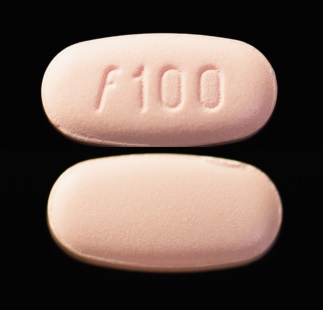Flibanserin Side Effects
Medically reviewed by Drugs.com. Last updated on Dec 4, 2023.
Applies to flibanserin: oral tablet.
Warning
Oral route (Tablet)
The use of flibanserin and alcohol together close in time increases the risk of severe hypotension and syncope. Counsel patients to wait at least 2 hours after consuming 1 or 2 standard alcoholic drinks before taking flibanserin at bedtime or to skip their bedtime flibanserin dose if they have consumed 3 or more standard alcoholic drinks that evening. Flibanserin is contraindicated with moderate or strong CYP3A4 inhibitors and in patients with hepatic impairment due to risk of severe hypotension and syncope.
Serious side effects of Flibanserin
Along with its needed effects, flibanserin may cause some unwanted effects. Although not all of these side effects may occur, if they do occur they may need medical attention.
Check with your doctor immediately if any of the following side effects occur while taking flibanserin:
More common
- Blurred vision
- confusion
- dizziness, fainting, or lightheadedness, especially when getting up suddenly from a lying or sitting position
- sleepiness or unusual drowsiness
- sweating
- unusual tiredness or weakness
Less common
- Feeling of constant movement of self or surroundings
- sensation of spinning
Rare
- Bloating
- fever
- nausea
- severe cramping
- stomach or lower abdominal pain
- vomiting
Incidence not known
- Chest tightness
- cough
- difficulty swallowing
- dizziness
- fast heartbeat
- hives, itching, skin rash
- large, hive-like swelling on face, eyelids, lips, tongue, throat, hands, legs, feet, or sex organs
- puffiness or swelling of the eyelids or around the eyes, face, lips, or tongue
- unusual tiredness or weakness
Other side effects of Flibanserin
Some side effects of flibanserin may occur that usually do not need medical attention. These side effects may go away during treatment as your body adjusts to the medicine. Also, your health care professional may be able to tell you about ways to prevent or reduce some of these side effects.
Check with your health care professional if any of the following side effects continue or are bothersome or if you have any questions about them:
Less common
- Constipation
- dry mouth
- nervousness
- normal menstrual bleeding occurring earlier, possibly lasting longer than expected
- trouble sleeping
For Healthcare Professionals
Applies to flibanserin: oral tablet.
General
-Serious adverse reactions were reported in 0.9% of patients. The discontinuation rate due to adverse reactions was 13%. The most common adverse reactions leading to discontinuation were dizziness, nausea, insomnia, somnolence, and anxiety.
-The majority of adverse reactions began within the first 14 days of treatment.[Ref]
Cardiovascular
Uncommon (0.1% to 1%): Hypotension, syncope[Ref]
When this drug is used alone, the incidence of hypotension is 0.2% and syncope is 0.4%. When this drug is taken with 0.4 g/kg alcohol, 17% had substantial reductions in blood pressure, resulting in hypotension and/or syncope requiring medical intervention. When 0.8 g/kg alcohol was taken in combination with this drug, 25% experienced orthostatic hypotension.[Ref]
Nervous system
Very common (10% or more): Dizziness (11.4%), somnolence (11.2%)
Common (1% to 10%): Sedation, fatigue, vertigo[Ref]
Patients taking hormonal contraceptives (HC) had a greater incidence of dizziness, somnolence, and fatigue compared to patients who did not use HC.[Ref]
Hypersensitivity
Postmarketing reports: Hypersensitivity reactions, including anaphylaxis, reactions consistent with angioedema (e.g., swelling of the face, lips, and mouth), pruritus, urticaria
Other
Common (1% to 10%): Accidental injury[Ref]
Among patients who experienced accidental injury, 21% reported adverse reactions consistent with CNS depression (e.g., somnolence, sedation, or fatigue) within the preceding 24 hours.[Ref]
Psychiatric
Common (1% to 10%): Insomnia, anxiety[Ref]
Gastrointestinal
Very common (10% or more): Nausea (10.4%)
Common (1% to 10%): Dry mouth, constipation
Uncommon (0.1% to 1%): Appendicitis[Ref]
Hematologic
Common (1% to 10%): Metrorrhagia[Ref]
Musculoskeletal
Common (1% to 10%): Abdominal pain[Ref]
Dermatologic
Common (1% to 10%): Rash[Ref]
Frequently asked questions
More about flibanserin
- Check interactions
- Compare alternatives
- Reviews (71)
- Dosage information
- During pregnancy
- Drug class: miscellaneous central nervous system agents
- En español
Patient resources
Other brands
Professional resources
Other brands
Related treatment guides
References
1. Product Information. Addyi (flibanserin). Sprout Pharmaceuticals. 2015.
Further information
Always consult your healthcare provider to ensure the information displayed on this page applies to your personal circumstances.
Some side effects may not be reported. You may report them to the FDA.

